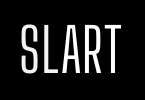It’s something I haven’t really spoken about before.
If this masterpiece is too long for email, you can read it here in Substack. Or download the app.

Hello dear reader,
Before we go into the post, I stumbled across a crisp, new copy of my book “Art, Life and Creativity” whilst organising my drawers at the weekend and thought “Why don’t I give this away for free to one lucky person?”. So I am doing just that.

All you need to do to enter is comment on and restack this post. If you are reading this via email, please forward it to one friend and let me know!
I will announce the winner 1 week from today, Wednesday 2nd October 2024.
Good luck!
—-
This week, I’d like to discuss a piece of art I’ve never shared before. It originates from a deep place within me that I haven’t explored extensively, but it’s always present in the background of my psyche.
This is the piece.
Just look at it for one minute—that is all I ask of you. Then, scroll down to reveal my thoughts and motivations surrounding the piece. Please make sure to comment and tell me your initial impressions and how they compare to mine.

My thoughts and motivations:
This artwork: inspired by a reference photograph, depicts my biological father observing a tiny baby boy—myself—through a circle formed by his hand. Born weighing only three pounds, I was tiny. The gesture made with my father’s hand appears to diminish my existence towards insignificance, in the same vein as gesturing that something is tiny by displaying a small gap between your fingers.
This piece explores the profound feelings of abandonment I experienced from my biological parents, reflecting on the brief connection and the emotional distance that characterised my early life. There’s a feeling of abandonment that I didn’t even know was there, but in hindsight, it all makes sense.
I had insight after insight whilst reading the book, The Primal Wound by Nancy Verrier. I found it hard to put down with all of the “That’s what I’m like!” and “Yes! Me too!” thoughts firing off in my brain. She says that unconsciously, babies who are detached from their birth mothers experience this primary feeling of abandonment that can’t be articulated.
The book explores the deep psychological impact of adoption on both adoptees and birth mothers. The book introduces the concept of the “primal wound,” referring to the emotional trauma experienced by adoptees who are separated from their biological mothers at birth. Verrier argues that this separation creates a sense of loss and disconnection, leading to lifelong emotional and psychological challenges, such as struggles with identity, abandonment, trust, and relationships. The book highlights the long-term effects of this early trauma and advocates for greater awareness and understanding of the adoptee’s inner emotional world, while also offering strategies for healing.
One way that this strongly manifested in my childhood on reflection was the strong sense of attachment I had to my Mum (meaning my grandmother who adopted me, but she will always be my Mum, God rest her soul).
I’ll tell you a little story about this.
It’s such a vivid memory, yet the event wasn’t significant to anyone else.
I was eight years old, hanging out with one of my best friends, James, outside our local youth club. It was the summer holidays, and we’d spent the day having fun—playing table tennis and watching Kindergarten Cop. The kind of carefree afternoon any kid would love.
But then, 15 minutes passed after the club closed, and our mums hadn’t shown up to collect us yet. At first, we were just chatting, not too concerned, wondering why they were late. Another 15 minutes went by, and that’s when something shifted inside me. A wave of anxiety hit me, hard and fast, and it felt like I was drowning in it. It was all-consuming. I tried to hide it from James, pretending everything was fine. I wanted to ask, “Where are they?” but my throat tightened, and I couldn’t force the words out. I could feel the panic rising, and soon I was fighting back tears, desperate not to let them fall in front of him.
For what felt like an eternity—though it was probably only another 10 minutes—I wrestled with this crushing fear, unable to shake the feeling that something was terribly wrong. Finally, our mums arrived, apologising for being late. Relief flooded over me, and I threw my arms around my mum like I hadn’t seen her in years. James, on the other hand, just casually greeted his mum, completely unfazed.
It was such a traumatic moment for me, one that hit me deeply, yet it didn’t seem to bother James at all. This was just one of many times I experienced those horrible, gut-wrenching feelings of being separated from my mum, feelings that I would never forget.
I feel embarrassed for sharing this with you today, but I felt I had to get it out on paper.
Thank you for reading,
SLART.
